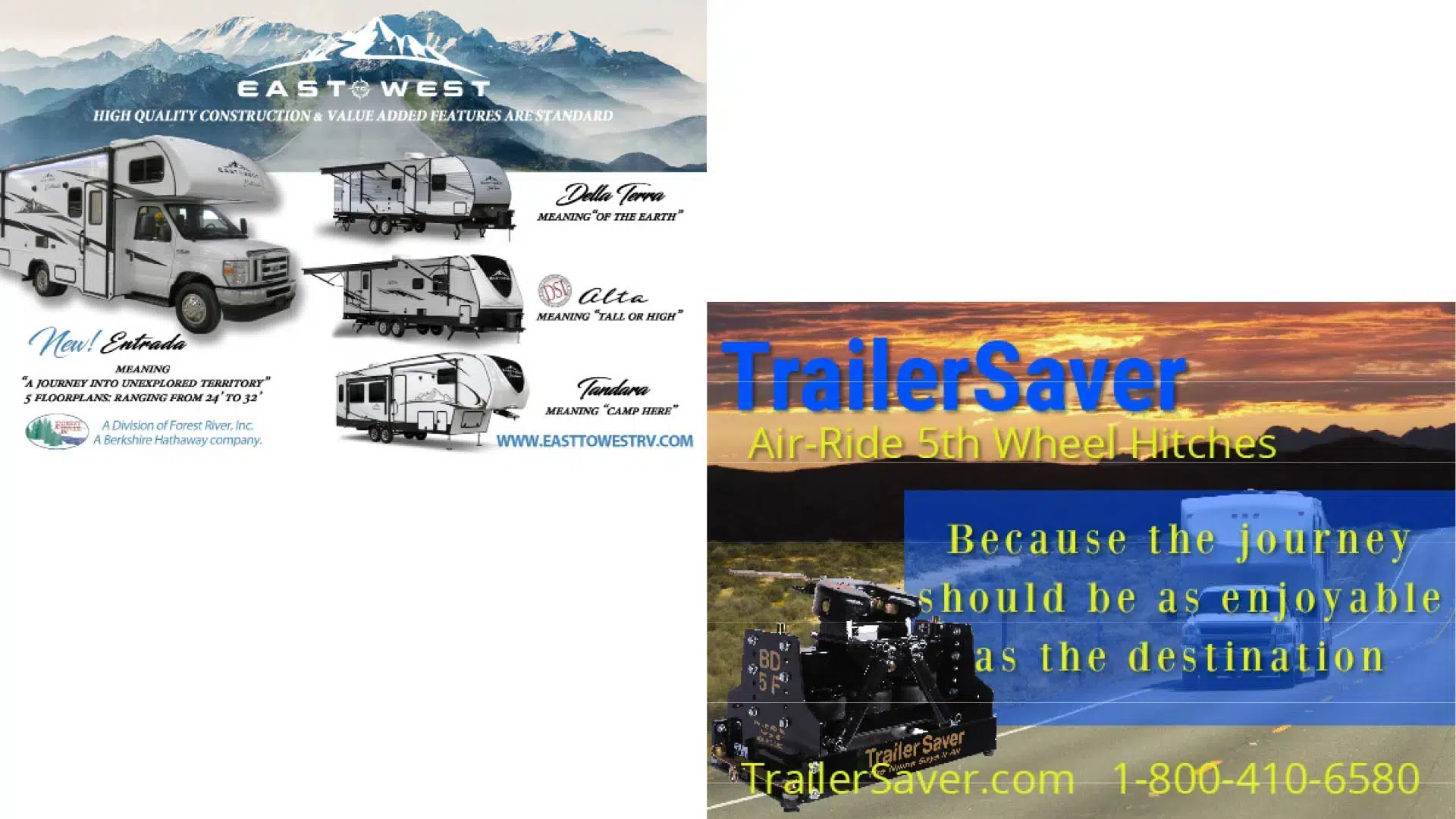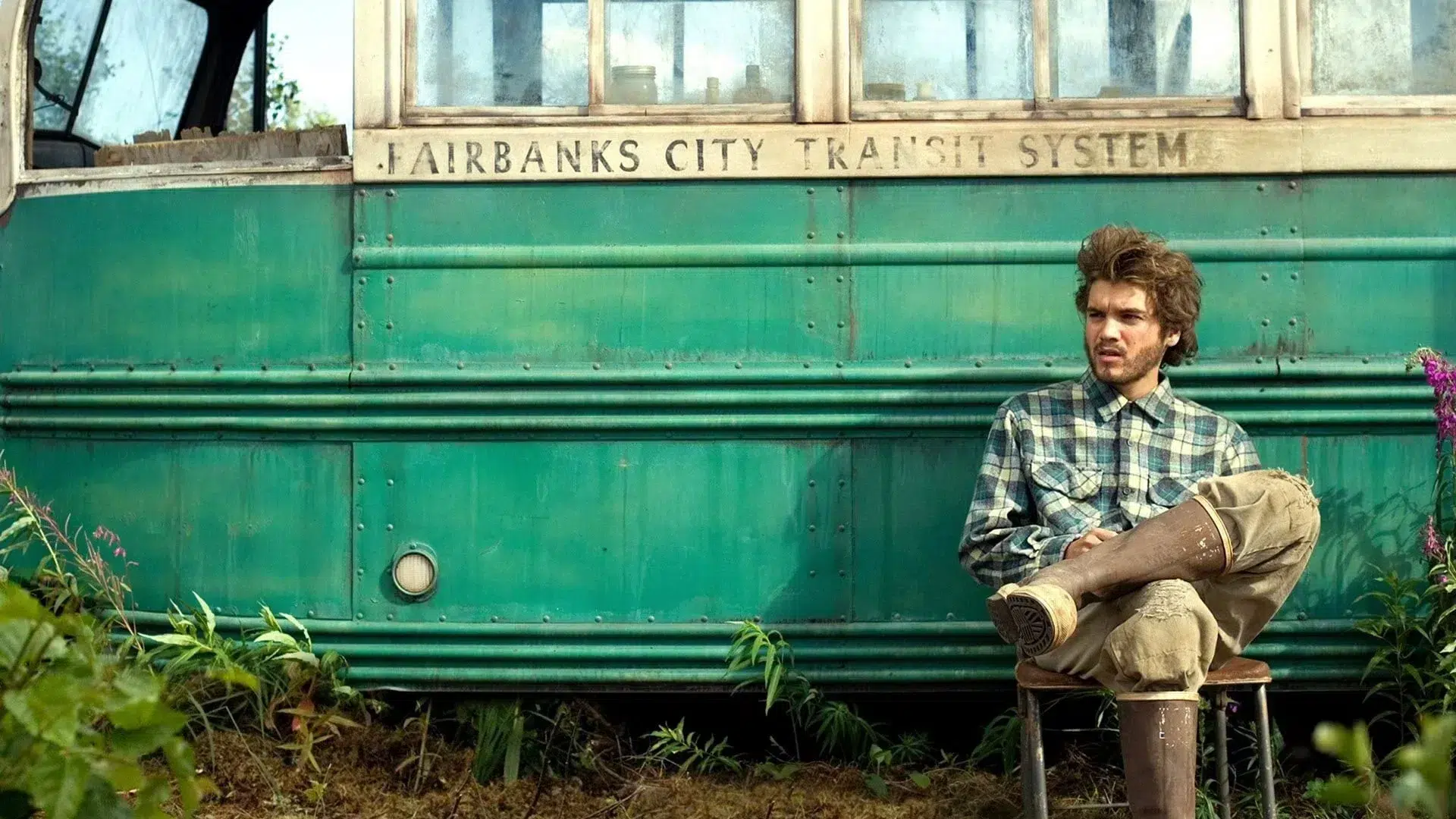
What 11 famous RVs from television and film get right—and wrong—about life on the road
MOST RVERS HAVE THIS IN COMMON: We don’t give two black water splashes what other people think about us. We also typically have this in common: We can’t turn away when we see ourselves portrayed on the big (or little) screen. If you’re like me, there’s an immediate intrigue when you see yourself represented in TV or film. It starts with an instant cringe—there’s going to be another poop scene, is my first thought. It’s almost inescapable. Our hobby is so often reduced in pop culture to its lowest common denominator. At times, we see an apparent desire to poke holes in the portrayal of our tribe.
Often those portrayals are insincere at best and pandering at worst. “That’s not what it’s really like” is always at the ready as we watch. But underneath it all is a desire to be seen. To be represented. Sure, the typical RVer has a countercultural mindset, but it’s still hard to fight off the desire to feel known. To be acknowledged, if not appreciated. Many Americans know this feeling and their desire is equally valid. So, as much as my first instinct is to shoot holes in the portrayals of our tribe, and despite the satisfaction, I get in pointing out inconsistencies, I truly want to see it gotten right. Here are 11 motion pictures big, small, and in between, that got it some degree of right or, in the case of several, horribly, horribly wrong, along with the takeaway message from each about RVs and those who love them.
FIRST COUSIN: “What’s Buzzin’, Cousin?” 1943
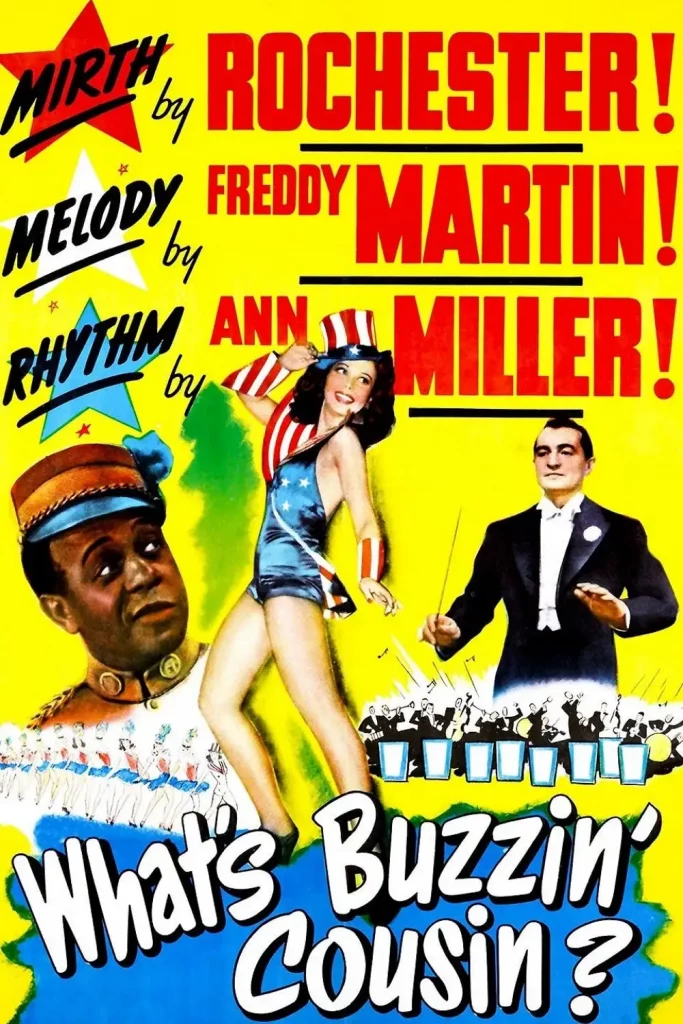
The first RV in the film appears to have been in 1943, in the musical comedy, “What’s Buzzin’, Cousin?” A copy of the film is impossible to find, so there’s no way to know if it also has the first of many inevitable black water scenes. According to IMDB.com, the plot includes running out of gas in a ghost town, a gold rush discovery, gangsters, a double cross, and love songs. It’s a grab bag of plot points that clearly connected with a slice of Americana that for many of us has not gone away. MESSAGE: RVs are here to stay, and it’s always a good idea to have great driving music.
THE LONG, LONG COMEDY TROPES: “The Long, Long Trailer” 1954
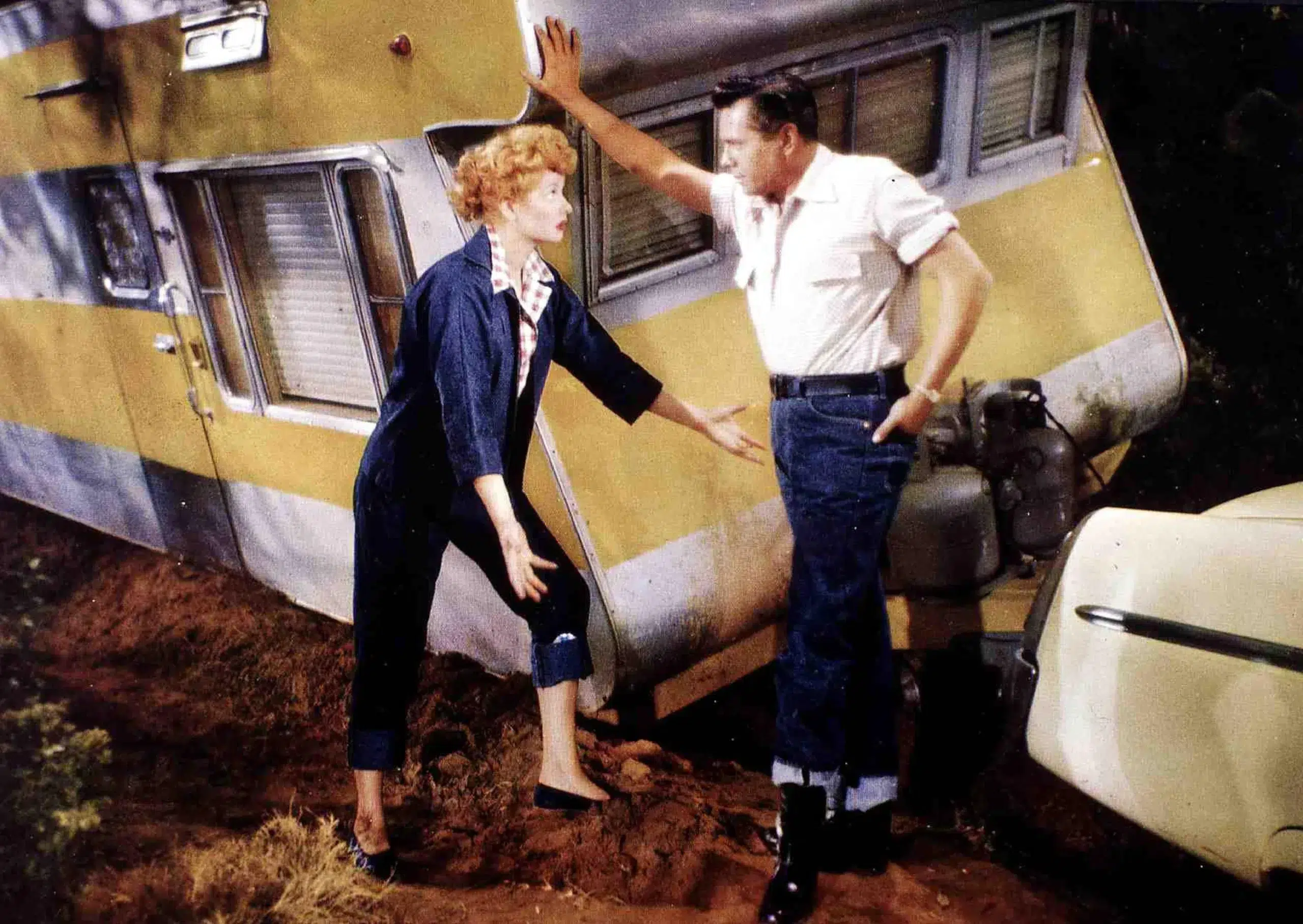
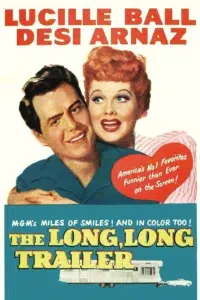
Desi Arnaz and Lucille Ball were as mainstream as they got in 1954—even more mainstream than the travel trailer they decided to take on their cinematic honeymoon. “The Long, Long Trailer” movie set a long, long precedent for RV hijinks, introducing an entire movie’s worth of comedy tropes. There is the slanted RV-cooking challenge, the backing-into-a-parking-spot gag, and driving-directions-are-hard hilarity. It’s worth the viewing for RV-loving classic movie buffs, but the plot will feel oddly familiar even during its groundbreaking introduction of RVs to America at large. MESSAGE: RVs are the perfect setting for physical comedy and classic hijinks.
BIG, BLUE COOL: “The Blues Brothers” 1980
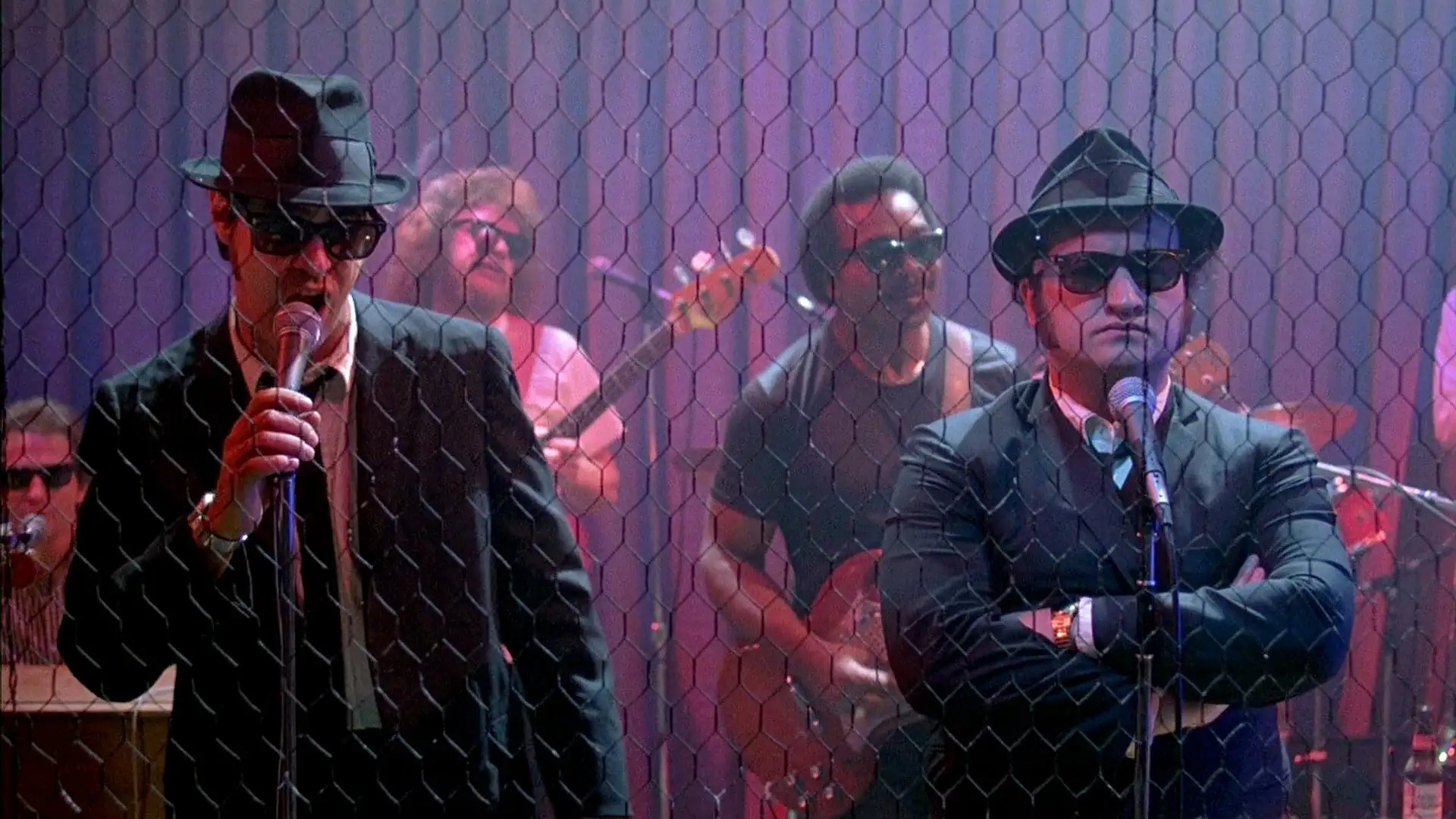
Love or hate its grown-up jokes and maybe-drug-fueled Saturday Night Live humor, “The Blues Brothers” still maintains its cool factor. What’s groundbreaking about the sophomoric movie’s RV is that the vehicle wasn’t the butt of the jokes. Instead, it was a personality cue for Jake and Elwood’s nemeses, a country music getup that crossed the country in their RV. It also featured a notable, fully pre-Thelma and Louise cliff scene only on a much smaller, and much wetter, scale.
TEN HUT: “Stripes” 1981
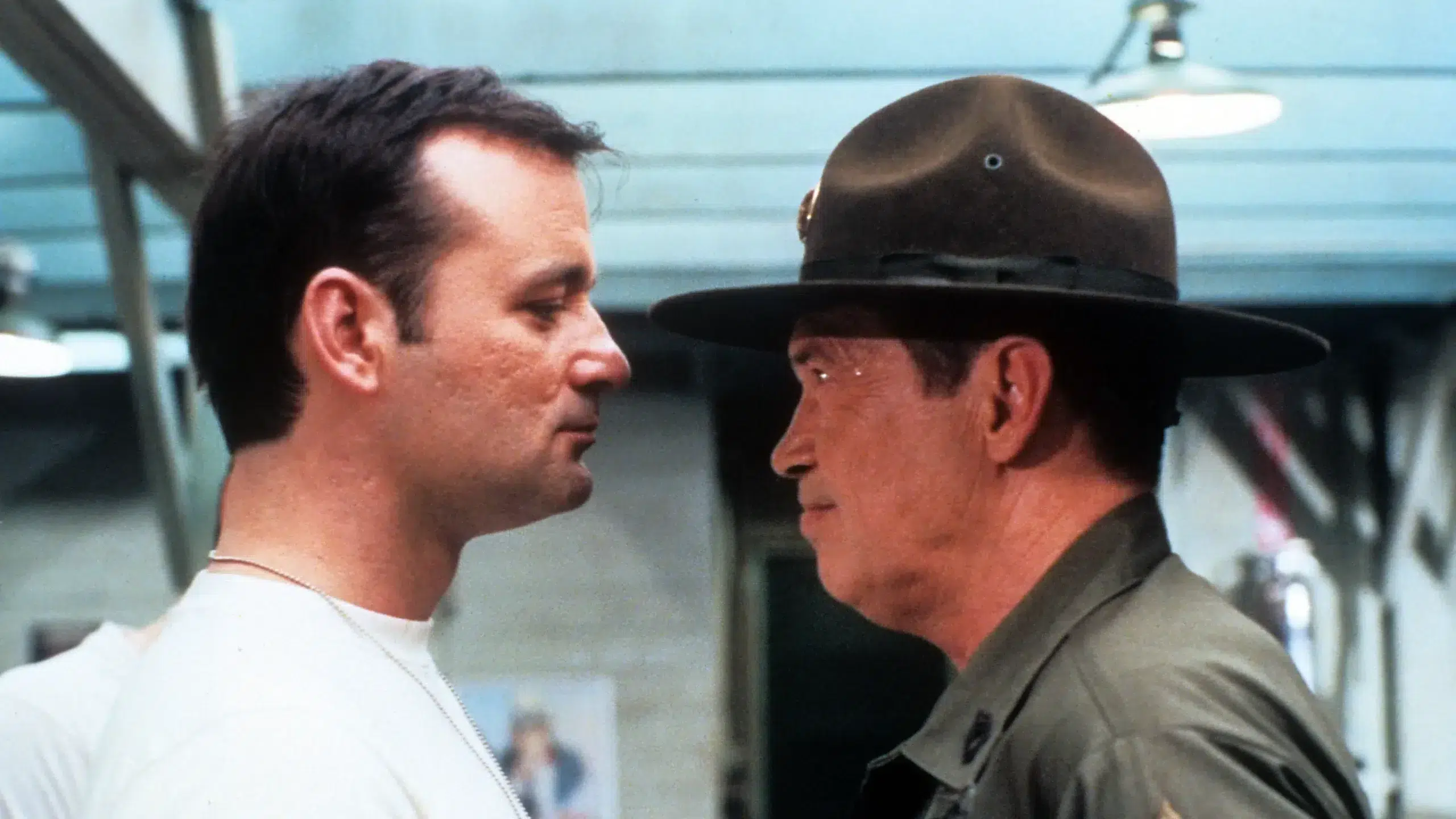
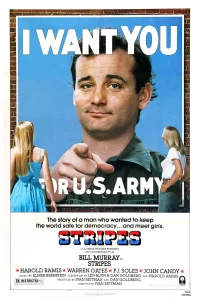
With an $85 million box office haul, “Stripes” was undeniably big-time. The RV here makes another cameo, versus a star turn, but the EM-50 Urban Assault Vehicle, based on the 1976 GMC Motorhome Palm Beach contributed some major plot points. The GMC Motorhome is still the only RV ever produced by a major car and truck manufacturer, and “Stripes” was similarly entrenched in popular culture. By its release in 1981,\ the RV was universally accepted as a story plot point, delivering an inherently ridiculous comic foil in a variety of contexts, but never one so explosive.
OUT OF THIS WORLD: “Spaceballs” 1987
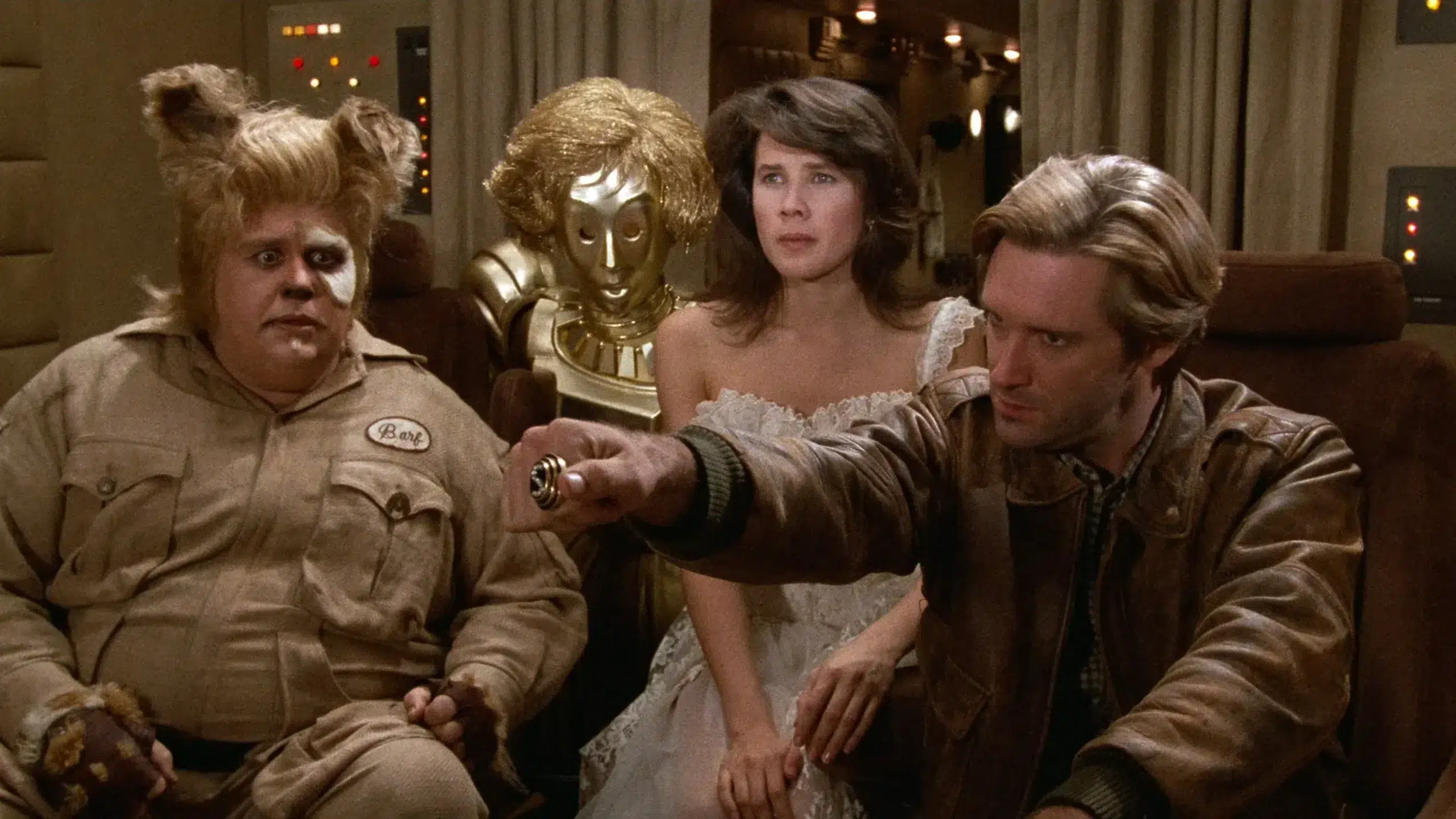
Honorable mention to the far-outest, spaciest Winnebago that has ever reached ludicrous speed.
MERRY RVNESS TO YOU: “Christmas Vacation” 1989
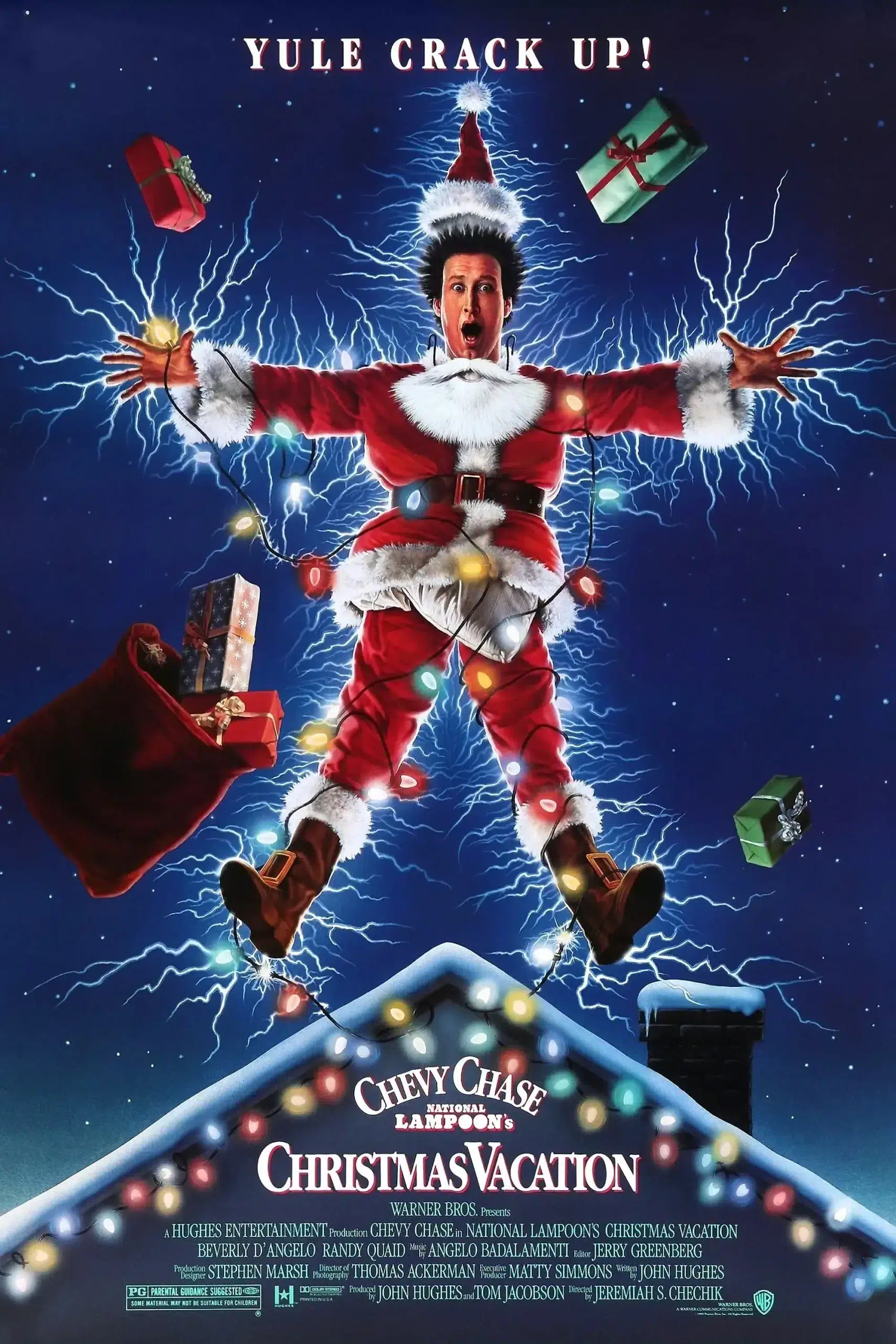
“Shitter was full” is, begging my mom’s pardon, one of the great lines in movie history. It’s poetic, with what writers call the “economy of words,” not wasting a syllable with any unnecessary verboseness. Its humor doesn’t rely on its moderate vulgarity, but it does capitalize on it, just like how it uses its RV. Cousin Eddy is the most heinous of overstayed and oversharing house guests, surrounded by National Lampoon’s comic absurdity, and bookended by its underlying and honest Christmas heart. Containing maybe the most well-known RV movie reference of all time, “Christmas Vacation” asks you to simultaneously forgive its rough edges and celebrate its underlying humanity. And it uses its RV for maximum humor. It’s a prop but a critical one.
MESSAGE: RVs aren’t an excuse to be a bad person. And always empty your tanks in approved dumping facilities.
THE WHOLE SHEBANG: “RV” 2006
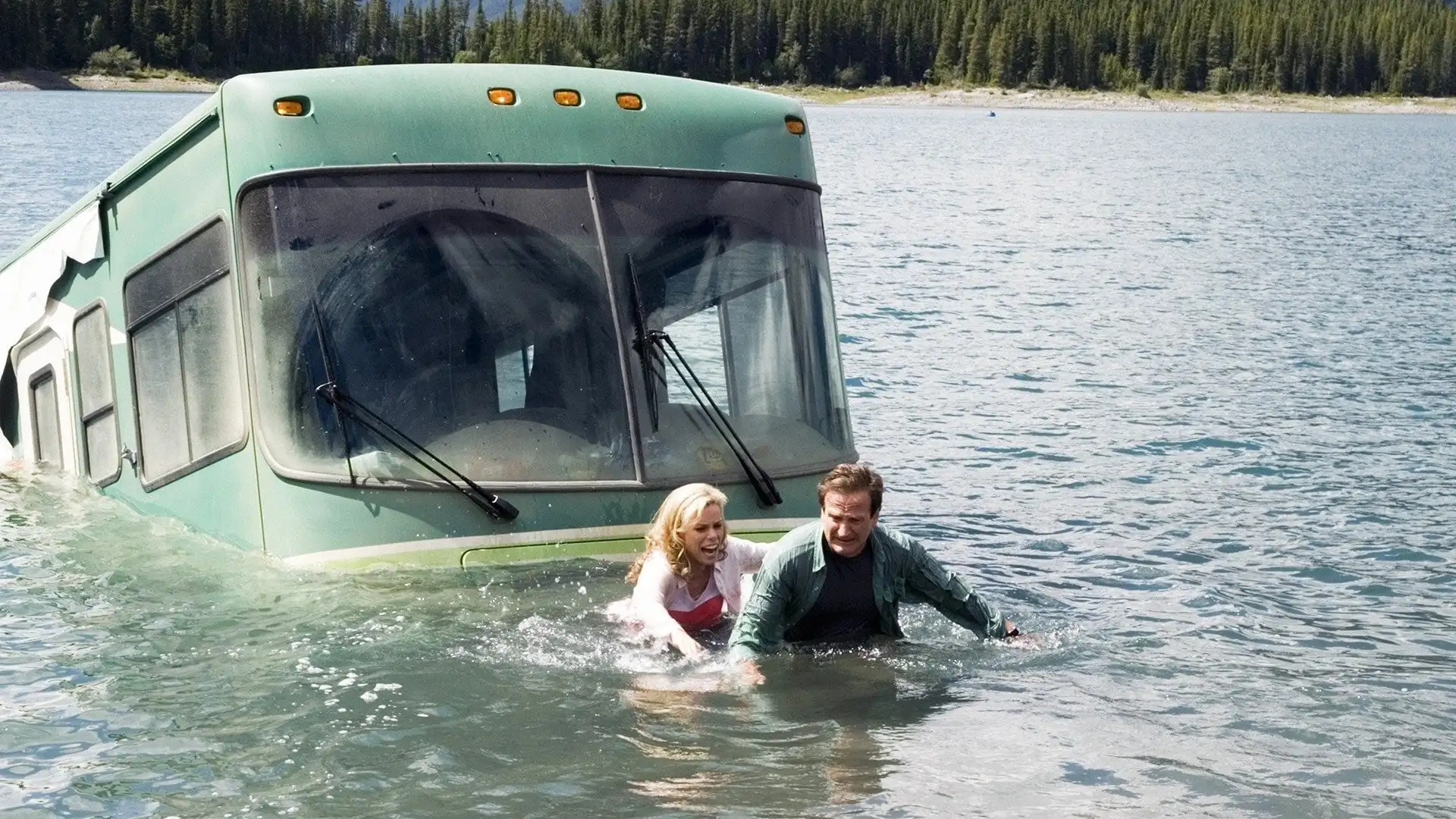
Mom, this idiot parked this ugly RV outside of our house,” says early-2000s pop star Jojo. Finally, in the year of 2006, the RV took the spotlight again. Utilizing essentially the grandchild dren of the jokes birthed back in “What’s Buzzin’, Cousin?”, RV devolves into some seriously cliché gags. The kooky RV park neighbors, funny custom horn sounds, brakes went-out-where-are we headed hilarity—and boy does black water ever play a leading role here. “RV” is a crappy (pun intended) portrayal of RV life, which delves more into stereotypes than\ personality type. Still, it’s worth celebrating as the first motion picture that put the entire RV life out there as one worth exploring.
THE WILD ONE: “Into the Wild” 2007
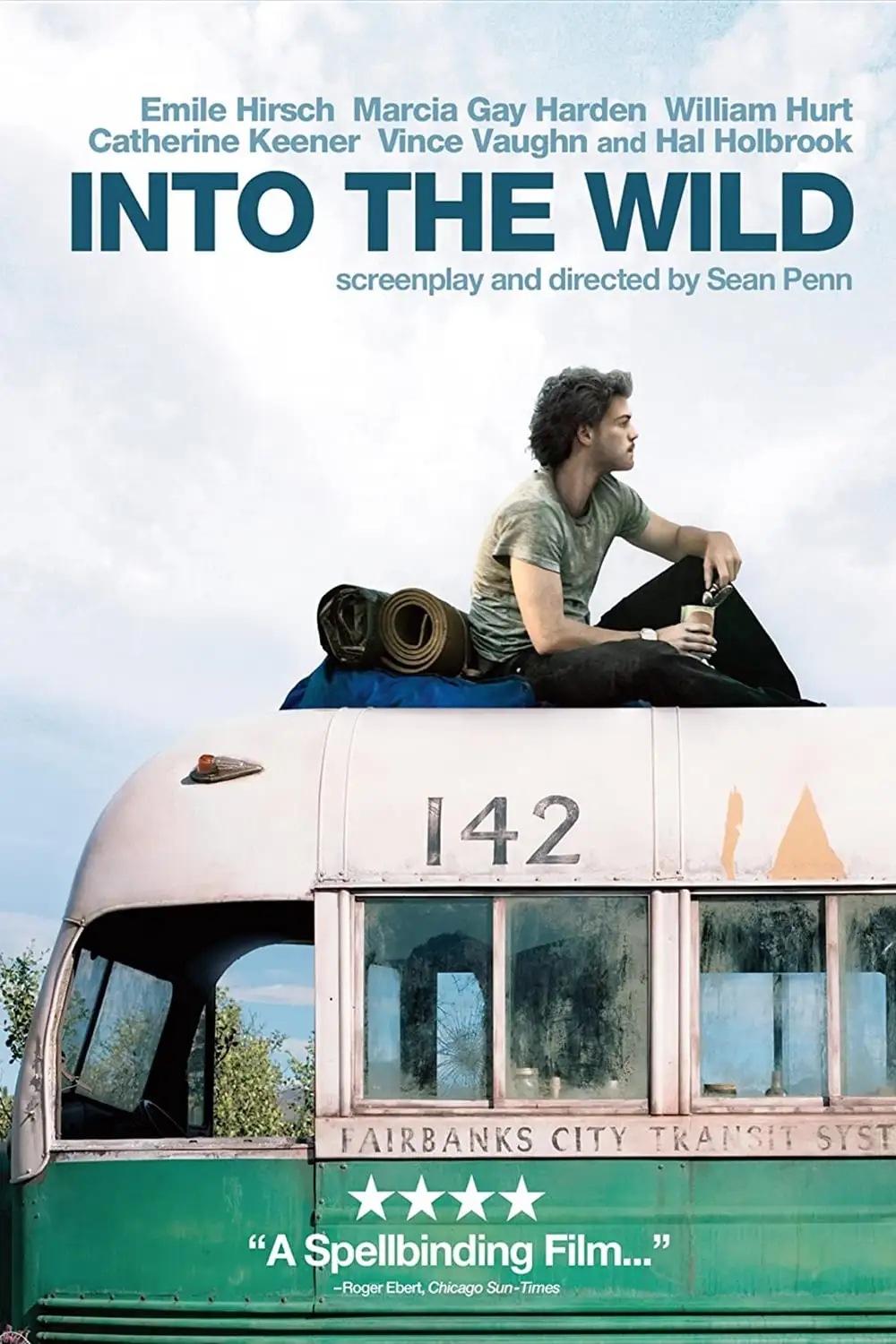
RVers feel the truth of this quote in their bones: “I read somewhere of how important it is in life to not necessarily to be strong, but to feel strong. To measure yourself at least once. To find yourself at least once in the most ancient of human conditions, facing the blind, deaf stone along with nothing to help you but your hands and your own head.” That must be 50 percent or more of what drives RVers to find the next perfect parking spot—the desire to be on the edge of what’s possible: personally, geographically, and contextually. “Into the Wild” isn’t an RV movie, but thousands of people from around the world have trekked to Fairbanks City Transit System Bus 142, which might be the most famous skoolie of all time, affectionately known as the
Magic Bus.
MESSAGE: Leaving the rat race is rewarding (Shawna Matsunaga would agree, And boondocking unprepared can be perilous.
THE BADDEST OF THEM ALL: “Breaking Bad” 2008
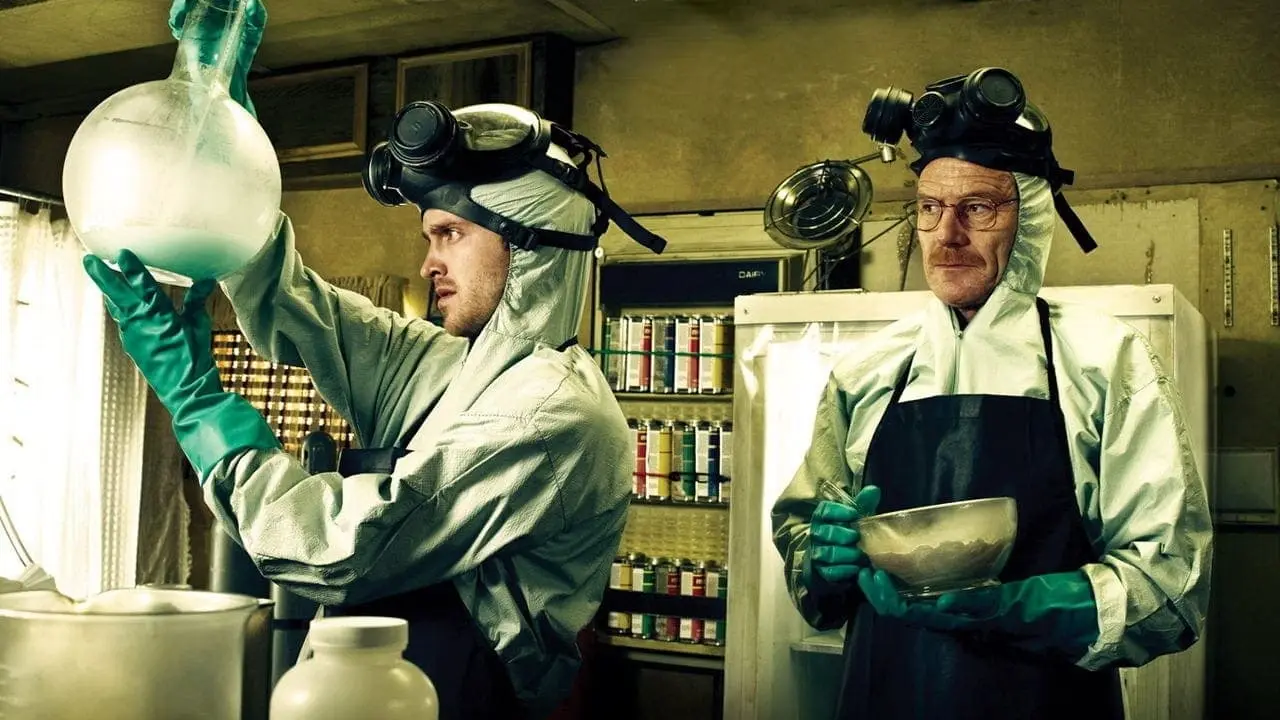
You really want your antihero to have a great entrance. Walter White drove into the national zeitgeist in tighty-whities and a gas mask, careening his 1986 Fleetwood Bounder mobile meth lab through an Albu unique desert with two bodies in the back. And RVs on TV would never be the same. The RV wasn’t just a recurring backdrop here. It was a strong supporting character in every sense of the word, delivering plot points, serving as both setting of and impetus for action through five seasons, and grounding the otherwise wild storyline in a strange hyperrealism “Breaking Bad” was unlike anything that had come before it, and so was the depiction of the “Krystal Ship.” The show took a dusty old motorhome and turned it into a star vehicle. And in so doing gave countercultural RVers an antihero to (mostly, and begrudgingly) root for. When it met its untimely demise, the emotional pain was identical to killing off a favorite character and served as a foreshadowing of tragedy to come. All in all, this was the RV’s all-time great role, deserving of our designation of it as the Baddest RV of All Time.
MESSAGE: There are some things about yourself that you absolutely can only learn in the back of a 1986 motorhome.
MOBILE SANCTUARY: “The Walking Dead” 2010
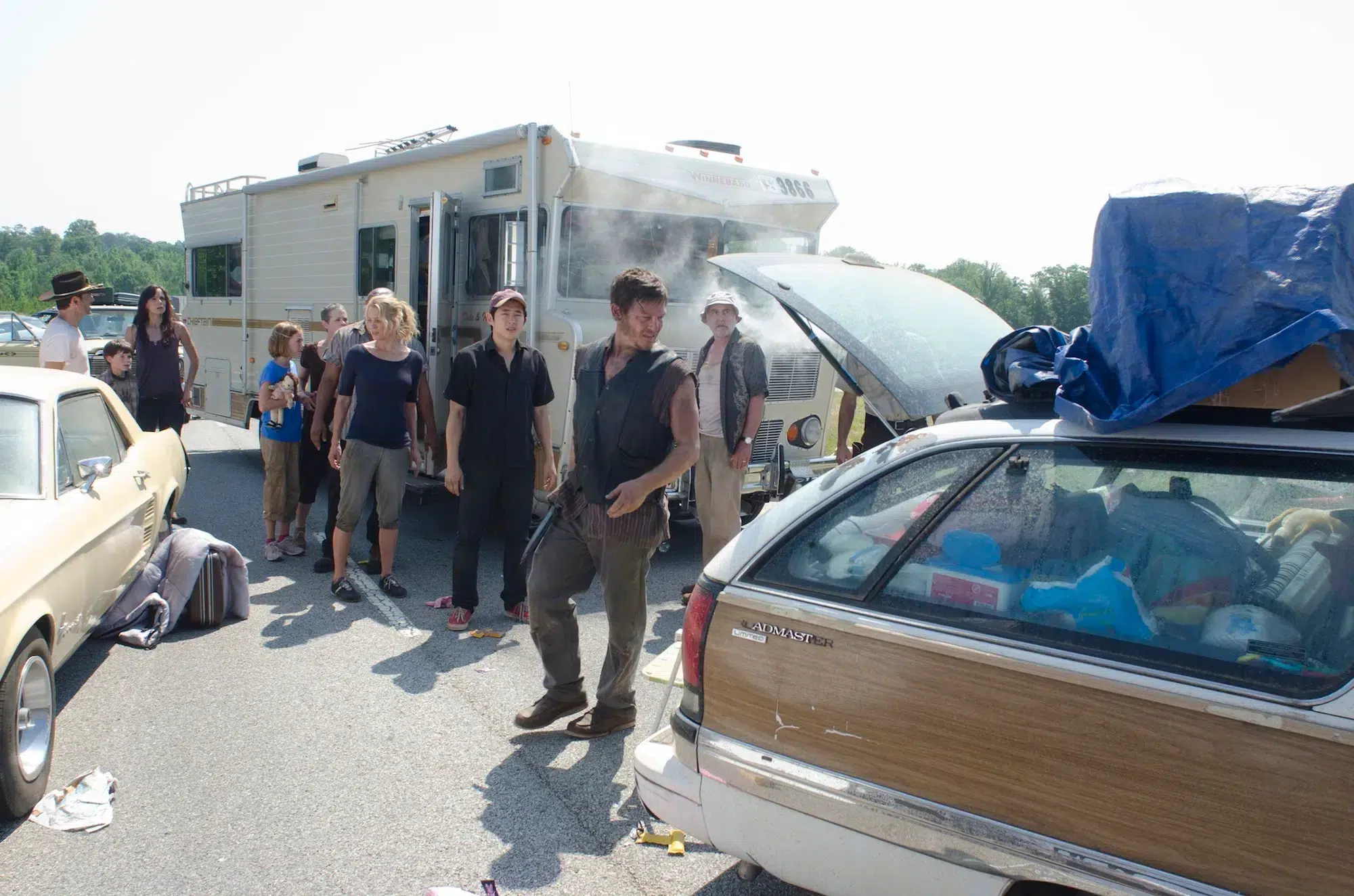
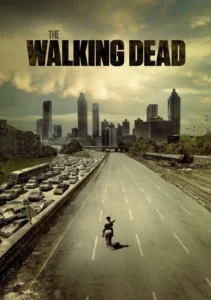
You can’t miss the Winnebago W on the side of the 1973 D-27C Chieftain in the “Walking Dead.” While less of a starring role and more of an ongoing character than in “Breaking Bad,” the show got a whole lot of mileage out of its recreational vehicle. We wouldn’t recommend using its bathroom during a zombie attack, but generally speaking, we saw the Win nebago as place of sanctuary, and a mobile place of peace in the midst of perpetual brainy mayhem.
MESSAGE: If you’re going to go through an apocalypse, bring your Winnebago.
THE WANDERER: “Nomadland” 2020
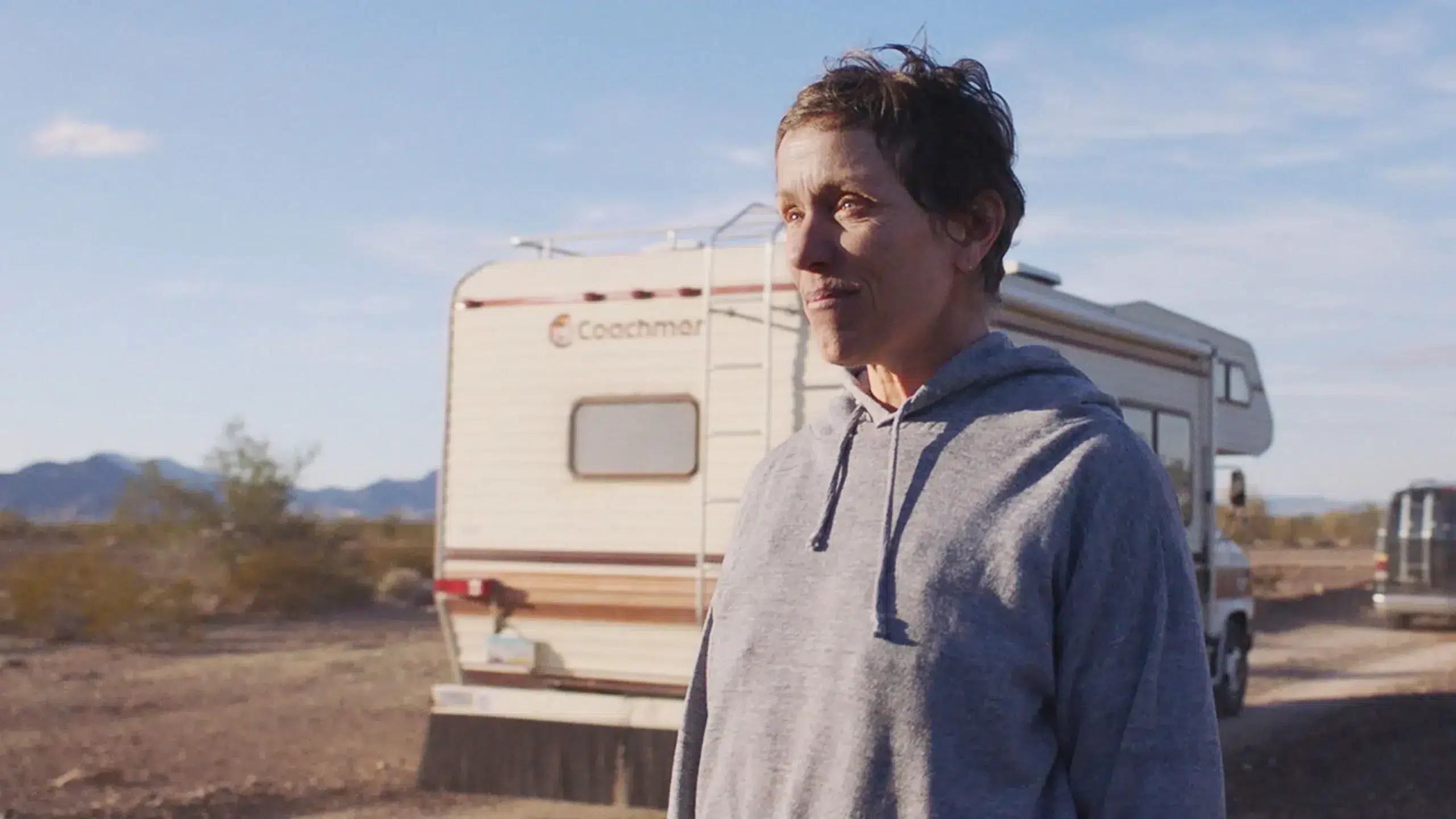
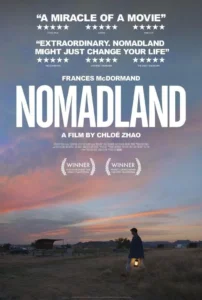 Like “Into the Wild” before it, “Nomadland” delivers an honest look at RVing in all its gritty glory. Sometimes exhilarating, sometimes a really crappy way to get from here to there, RVing in this Academy-Award-Best-Picture-winning film is living its best life. In part, that’s because the film uses real, non-actor people to deliver some of its most memorable performances, including real-life van-dwelling YouTube guru Bob Wells. Like any great story, “Nomadland” is really about relationships, including between the protagonist, played by Frances McDormand, and her van. Like any great relationship, it’s sometimes strained, and each participant takes its toll on the other.
Like “Into the Wild” before it, “Nomadland” delivers an honest look at RVing in all its gritty glory. Sometimes exhilarating, sometimes a really crappy way to get from here to there, RVing in this Academy-Award-Best-Picture-winning film is living its best life. In part, that’s because the film uses real, non-actor people to deliver some of its most memorable performances, including real-life van-dwelling YouTube guru Bob Wells. Like any great story, “Nomadland” is really about relationships, including between the protagonist, played by Frances McDormand, and her van. Like any great relationship, it’s sometimes strained, and each participant takes its toll on the other.
But we ultimately find beauty in the places that the picture goes physically and emotionally. It took until 2020 for Hollywood to get the representation of RVers this right, but the payoff comes in the unflinchingly honest look at the lifestyle we all love, reflected back to us by this piece of art in all its tainted glory. In “Nomadland,” we aren’t just seen, we’re known. And the bare truth that the film captures so well is that RVing is more than a hobby for anyone serious about it—in fact, it’s a way of life for many. It’s a calling, even, for some, requiring maximum sacrifice from its deepest devotees, but returning in kind a lifestyle that, even when not glamorous, is never boring. And that might be what the film gets most right.
